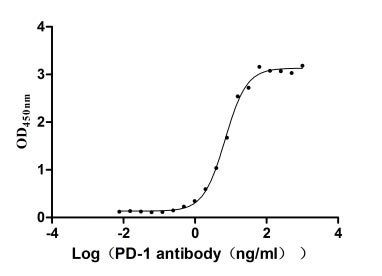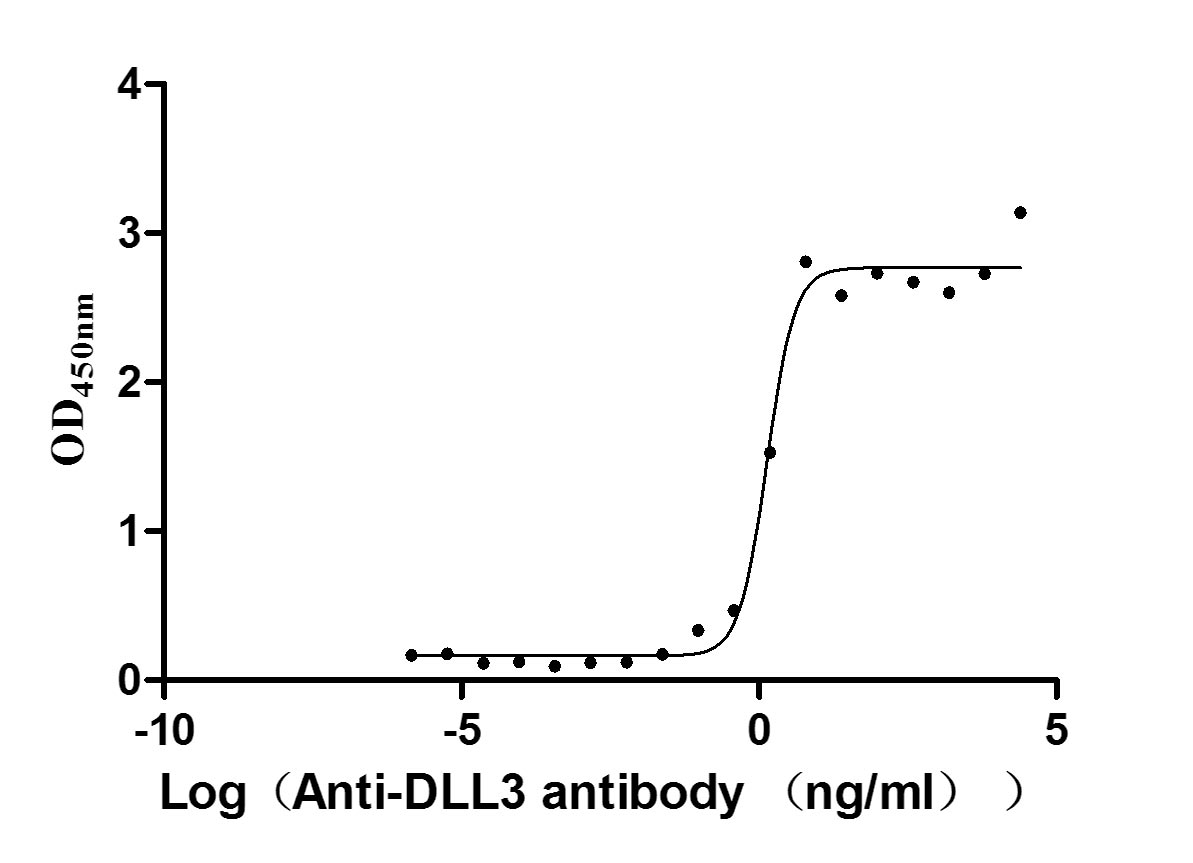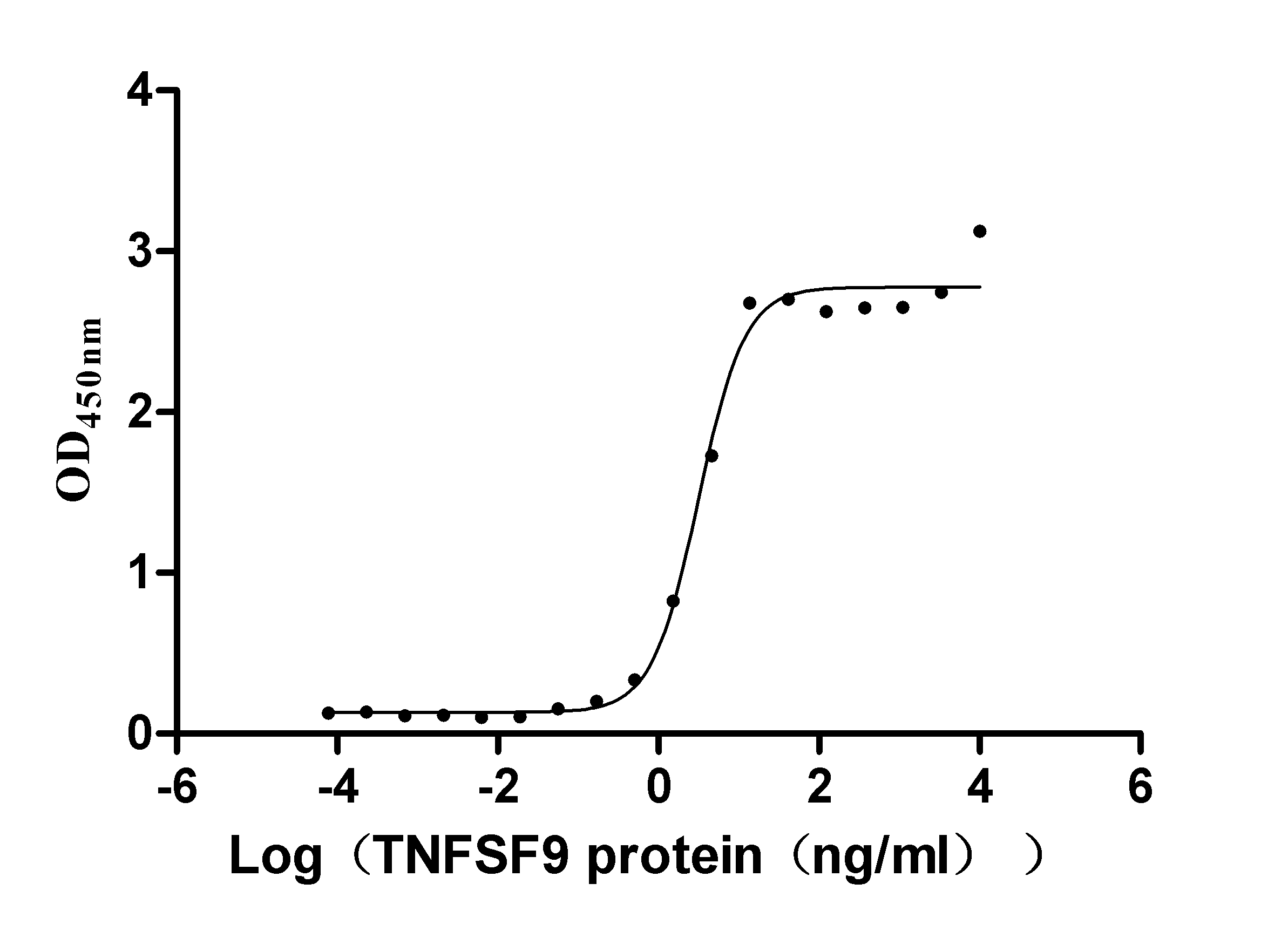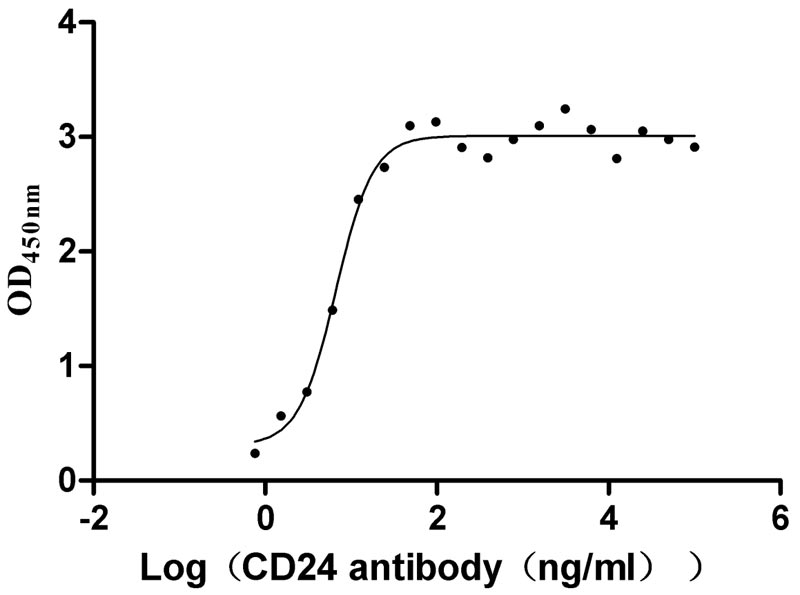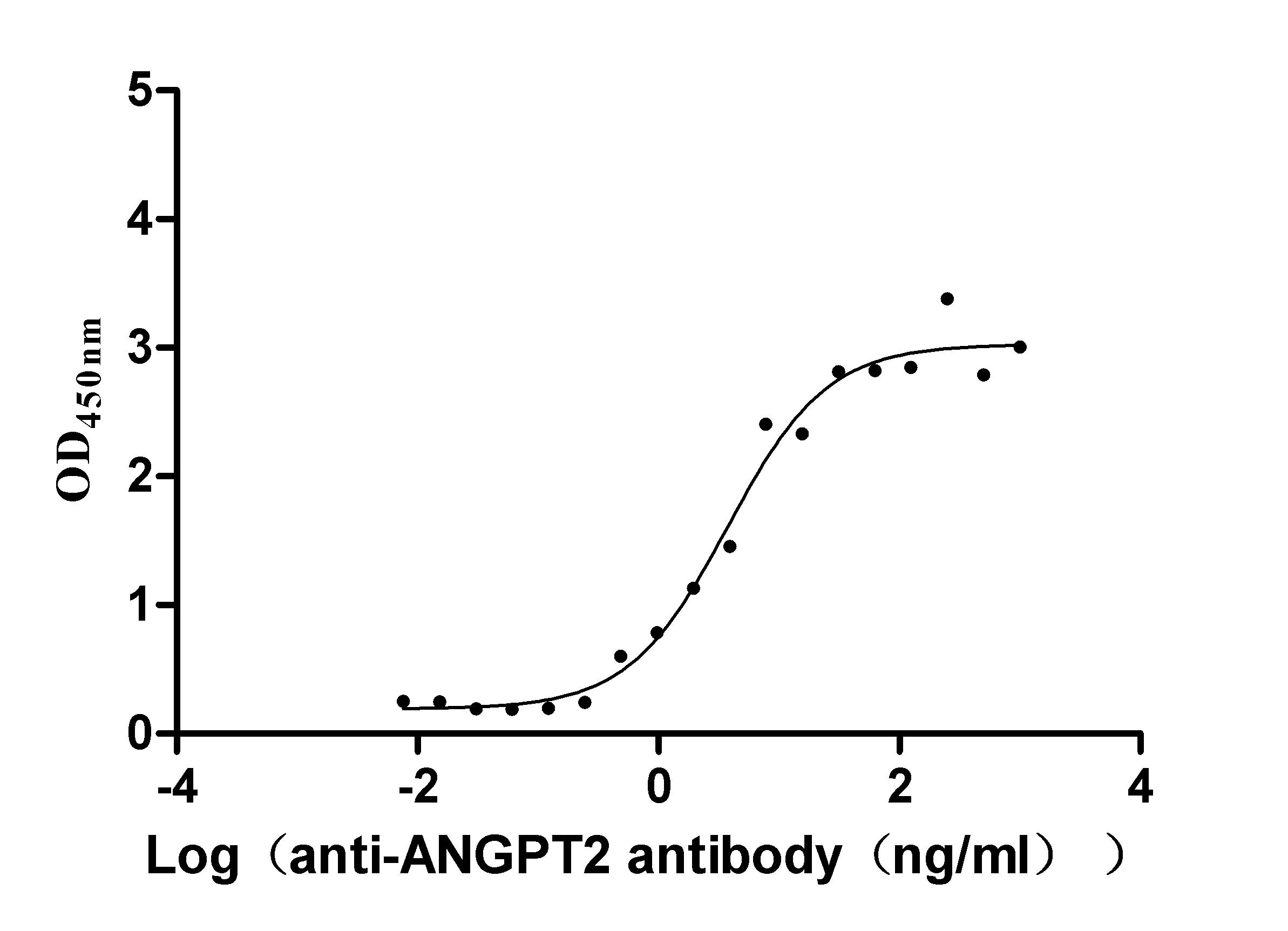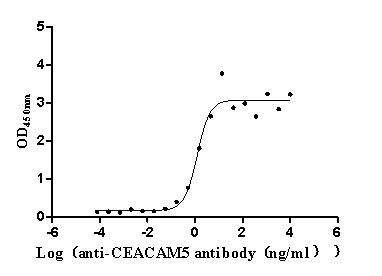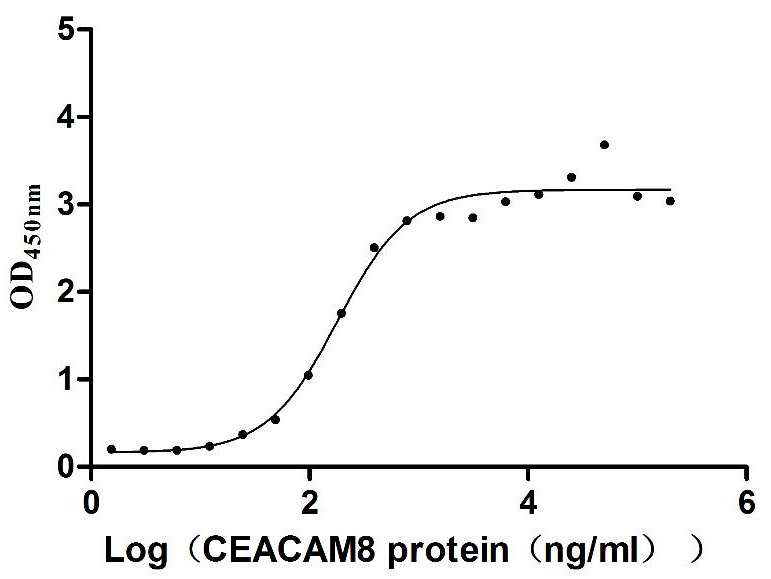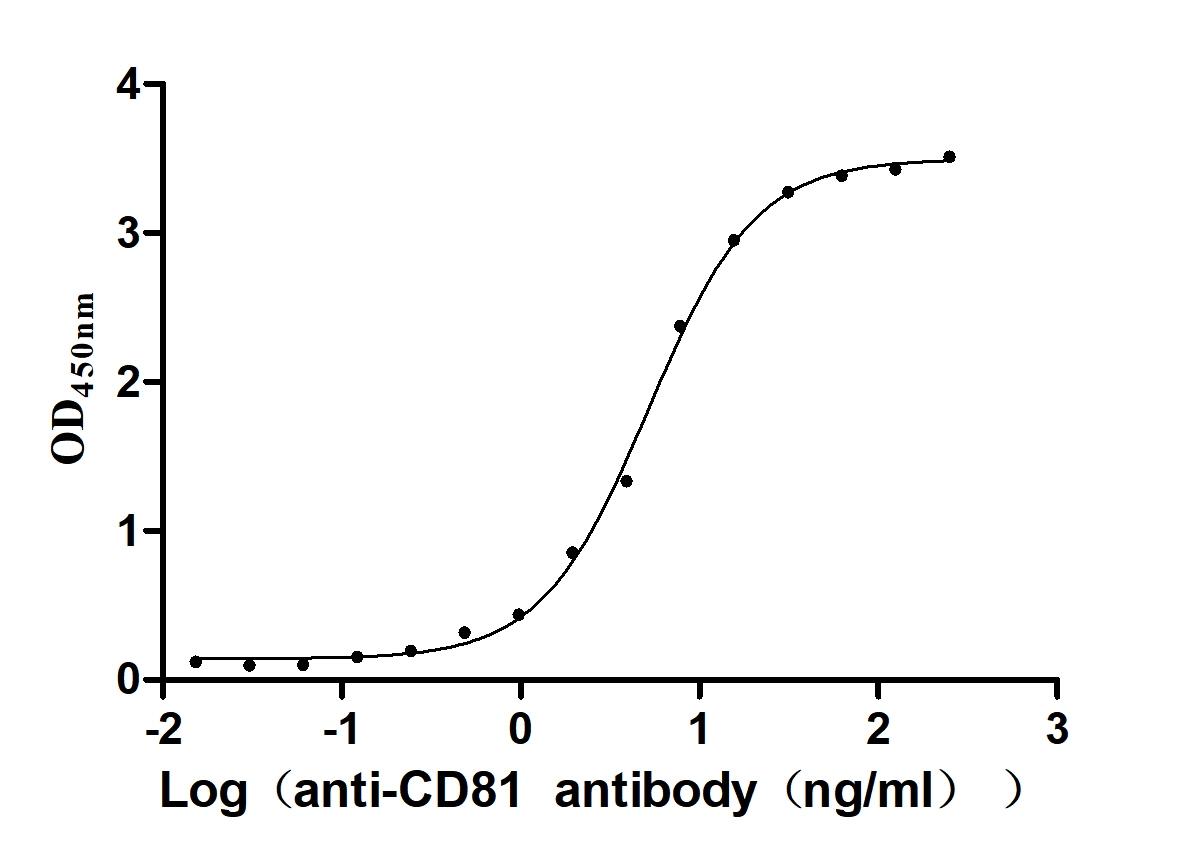Recombinant Plasmodium falciparum Putative chloroquine resistance transporter (CG10), partial
-
货号:CSB-YP812844EWP
-
规格:
-
来源:Yeast
-
其他:
-
货号:CSB-EP812844EWP
-
规格:
-
来源:E.coli
-
其他:
-
货号:CSB-EP812844EWP-B
-
规格:
-
来源:E.coli
-
共轭:Avi-tag Biotinylated
E. coli biotin ligase (BirA) is highly specific in covalently attaching biotin to the 15 amino acid AviTag peptide. This recombinant protein was biotinylated in vivo by AviTag-BirA technology, which method is BriA catalyzes amide linkage between the biotin and the specific lysine of the AviTag.
-
其他:
-
货号:CSB-BP812844EWP
-
规格:
-
来源:Baculovirus
-
其他:
-
货号:CSB-MP812844EWP
-
规格:
-
来源:Mammalian cell
-
其他:
产品详情
-
纯度:>85% (SDS-PAGE)
-
基因名:CG10
-
Uniprot No.:
-
别名:CG10; MAL7P1.27Putative chloroquine resistance transporter; PfCRT; Probable transporter cg10
-
种属:Plasmodium falciparum (isolate 3D7)
-
蛋白长度:Partial
-
蛋白标签:Tag type will be determined during the manufacturing process.
The tag type will be determined during production process. If you have specified tag type, please tell us and we will develop the specified tag preferentially. -
产品提供形式:Lyophilized powder
Note: We will preferentially ship the format that we have in stock, however, if you have any special requirement for the format, please remark your requirement when placing the order, we will prepare according to your demand. -
复溶:We recommend that this vial be briefly centrifuged prior to opening to bring the contents to the bottom. Please reconstitute protein in deionized sterile water to a concentration of 0.1-1.0 mg/mL.We recommend to add 5-50% of glycerol (final concentration) and aliquot for long-term storage at -20℃/-80℃. Our default final concentration of glycerol is 50%. Customers could use it as reference.
-
储存条件:Store at -20°C/-80°C upon receipt, aliquoting is necessary for mutiple use. Avoid repeated freeze-thaw cycles.
-
保质期:The shelf life is related to many factors, storage state, buffer ingredients, storage temperature and the stability of the protein itself.
Generally, the shelf life of liquid form is 6 months at -20°C/-80°C. The shelf life of lyophilized form is 12 months at -20°C/-80°C. -
货期:Delivery time may differ from different purchasing way or location, please kindly consult your local distributors for specific delivery time.Note: All of our proteins are default shipped with normal blue ice packs, if you request to ship with dry ice, please communicate with us in advance and extra fees will be charged.
-
注意事项:Repeated freezing and thawing is not recommended. Store working aliquots at 4°C for up to one week.
-
Datasheet :Please contact us to get it.
靶点详情
-
功能:May regulate endogenous transporter.
-
基因功能参考文献:
- report that a variant form of the chloroquine resistance transporter, harboring a C101F mutation edited into the chloroquine (CQ)-resistant Dd2 isoform prevalent in Asia, can confer piperaquine resistance in cultured parasite PMID: 28487425
- Data suggest that PfCRT is an electrogenic carrier/transporter of chloroquine and iron (both ferrous and ferric iron, albeit with different kinetics). PMID: 28768767
- The PfCRT mutation (F145I) was associated with dihydroartemisinin-piperaquine treatment failure after adjusting for the presence of amplified plasmepsin II/III, which was also associated with decreased piperaquine sensitivity. PMID: 28931241
- Focusing on the quadruple-mutant Ecuadorian PfCRT haplotype Ecu1110 (K76T/A220S/N326D/I356L), we genetically modified the pfcrt locus of isogenic, asexual blood stage P. falciparum parasites using zinc-finger nucleases. In our analysis, the Ecu1110 PfCRT haplotype was identified as an accessible mutational precursor of the quintuple-SNP 7G8 haplotype. PMID: 26908582
- Results from our study provide new insights into the complex molecular basis and physiological impact of PfCRT-mediated antimalarial drug resistance PMID: 27832198
- PCR-RFLP analysis identified the genotype threonine substitution at codon 76 (76T) in pfcrt gene in 44 cases. PMID: 28376874
- Clusters of conformations with the free energy of binding were estimated which clearly demonstrated the potential channel and by this means the translocation across the PfCRT is anticipated. PMID: 25783783
- Studied the prevalence of the pfcrt K76T mutation 13 years after chloroquine cessation in Msambweni, Kenya. PMID: 26296743
- High prevalence of Plasmodium falciparum pfcrt K76T mutation in children with sickle cell disease at a tertiary hospital in north-western Tanzania. PMID: 26891514
- acquisition of a mutation in pfcrt has a role in reversal of chloroquine resistance PMID: 26261345
- pfcrt-associated co-expression in the CQ resistant progeny highlights CQR-specific gene relationships and possible targeted intervention strategies. PMID: 25765049
- the common K76T mutation that is often used to distinguish a chloroquine resistance (CQR) phenotype is not, in and of itself, a fully reliable indicator of CQR status in 53 distinct isoforms PMID: 26208441
- Full-length analysis of pfcrt showed that chloroquine resistant P. falciparum in Sabah is still prevalent despite the withdrawal of chloroquine usage since 1979. PMID: 25574497
- we investigated the association between in vitro quinine susceptibility and genetic polymorphisms in Pfmdr1, Pfcrt, and Pfnhe1 in 88 field isolates from western Kenya PMID: 24752268
- PfCRT is a H(+)-coupled polyspecific nutrient and drug exporter. PMID: 25733858
- The presence of mutations in pfcrt K76T and pfmdr1 N86Y genes is not sufficient to explain the therapeutic efficacy of chloroquine to P. falciparum. PMID: 24916876
- PfCRT possesses multiple substrate-binding sites. PMID: 25378409
- Based on the currently available data, it seems that the ~100-Kb region in chromosome 7 in the P. falciparum genome holds the key for the determination of chloroquine resistance. PMID: 24402147
- A high observed haplotype diversity is found in Pfcrt isolated from Plasmodium falciparum samples in Cameroon. PMID: 24092656
- A detailed molecular analysis of the number of mutations (and the order of addition) required to confer chloroquine (CQ) transport activity upon the PfCRT as well as a kinetic characterization of diverse forms of PfCRT, is reported. PMID: 24728833
- analysis of Plasmodium falciparum chloroquine resistance transporter isoforms and how specific alleles affect CQ transport PMID: 23688277
- The prevalence of the mutant pfcrt allele (T76) was 92% in Plasmodium falciparum field isolates from Congolese children with asymptomatic infections. PMID: 22463364
- Results indicate high levels of genetic diversity in pfcrt exon 2 prior to the historical chloroquine resistance selective sweep, particularly in areas where disease burden was relatively low. PMID: 22272308
- The presence of the CVIET haplotype in Nigerian P. falciparum isolates and not in Brazilian isolates, further supports the evolutionary path of chloroquine resistance spreading to Africa from South East Asia. PMID: 22302850
- Expression of PfCRT confers chloroquine hypersensitivity into growing Saccharomyces cerevisiae due to plasma membrane localization of the transporter of P. falciparum. PMID: 21744797
- The researchers found evidence of a mutation at codon 76 of PfCRT in all isolates from a sample of Plasmodium falciparum in Saudi Arabia. PMID: 20427933
- Isolates were identified with novel mutations at K76A and E198K. There was a suggestion that parasites carrying E198K were less resistant than those that did not. No relationship between the expression level of the gene and response to drug was observed. PMID: 21320353
- Results with a sequence and structure analysis of PfCRT have implications for the development of novel therapies against resistant malaria strains. PMID: 21124966
- Pfcrt region covering codons 72-76 was sequenced from blood of falciparum malaria patients in Nepal. SVMNT haplotype was predominant in patients from the Central region, and CVIET haplotype in the Eastern region, associated with visiting India. PMID: 21323158
- Plasmodium falciparum PMID: 20547800
- One isolate, H209, harbored a novel PfCRT C350R mutation and demonstrated reduced quinine and artemisinin susceptibility PMID: 20485514
- data establish PfCRT as a phosphoprotein and suggest that phosphorylation of threonine 416 is a possible deciding signal for the sorting of PfCRT to the digestive vacuolar membrane PMID: 20015114
- infections with P. falciparum isolates encoding this protein are dependent on age rather than multiple infections. PMID: 15772316
- Single nucleotide polymorphisms in the pfcrt gene, including a newly reported mutation (S334N), were seen in isolates with decreased susceptibility to amodiaquine and desethylamodiaquine. PMID: 18165517
- Polymorphisms within PfCRT are causatively linked with an increased verapamil-sensitive quinine efflux that, depending on the genetic background, resulted in reduced quinine accumulation. PMID: 18194156
- almost all (95%) of the isolates of infecting children had the K76T mutation in their pfcrt genes PMID: 18577328
- Chloroquine resistance-conferring forms of PfCRT mediate the efflux of chloroquine, in association with H+, from the malaria parasite's digestive vacuole. PMID: 18852275
- the pfcrt K76T mutation is a drug-specific contributor to enhanced P. falciparum susceptibility to lumefantrine in vivo and in vitro PMID: 19210165
- frequency of mutations in the pfcrt gene was determined; presence of each mutation was associated with treatment failure; two haplotypes, SMET and SMNT, were reported for the first time in Colombia PMID: 19462557
- CRT catalyzes diffusion of fluorescent probe out of the parasite's digestive vacuole at a rate that can partially compete with adenosine triphosphate (ATP)-dependent uptake of the probe by chloroquine-sensitive parasites. PMID: 19725576
- findings show the resistant form of PfCRT transported chloroquine (CQ); the wild-type protein did not; CQ transport via mutant PfCRT was inhibited by CQ analogs & by verapamil; CQ resistance is due to direct transport of the drug via mutant PfCRT PMID: 19779197
显示更多
收起更多
-
亚细胞定位:Vacuole membrane; Multi-pass membrane protein.
-
蛋白家族:CRT-like transporter family
-
数据库链接:
KEGG: pfa:MAL7P1.27
Most popular with customers
-
Recombinant Human Programmed cell death protein 1 (PDCD1), partial (Active)
Express system: Mammalian cell
Species: Homo sapiens (Human)
-
Recombinant Human Delta-like protein 3 (DLL3), partial (Active)
Express system: Mammalian cell
Species: Homo sapiens (Human)
-
Recombinant Human Tumor necrosis factor ligand superfamily member 9 (TNFSF9), partial (Active)
Express system: Mammalian cell
Species: Homo sapiens (Human)
-
Recombinant Human Signal transducer CD24 (CD24)-Nanoparticle (Active)
Express system: Mammalian cell
Species: Homo sapiens (Human)
-
Recombinant Dog Angiopoietin-2 (ANGPT2) (Active)
Express system: Mammalian cell
Species: Canis lupus familiaris (Dog) (Canis familiaris)
-
Express system: Mammalian cell
Species: Homo sapiens (Human)
-
Recombinant Human Carcinoembryonic antigen-related cell adhesion molecule 6 (CEACAM6) (Active)
Express system: Mammalian cell
Species: Homo sapiens (Human)
-
Recombinant Human CD81 antigen (CD81), partial (Active)
Express system: Mammalian cell
Species: Homo sapiens (Human)


